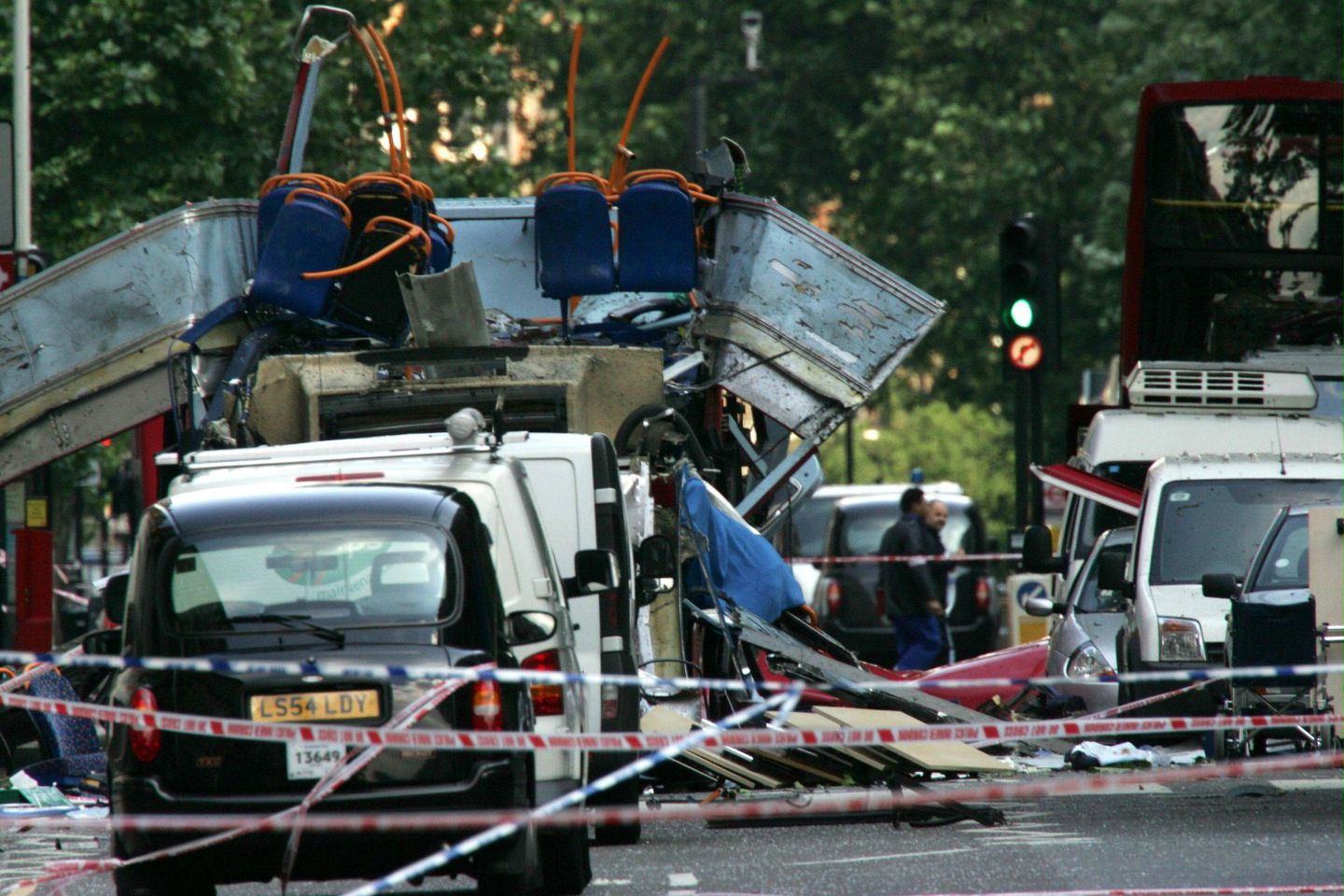
LONDON — King Charles III, Prime Minister Keir Starmer and countless ordinary Londoners paused Monday to mark the 20th anniversary of the 2005 London transit bombings, the deadliest attack on the British capital since World War II.
Fifty-two people died and more than 770 were wounded when four British men inspired by al-Qaida blew themselves up on three subway trains and a bus during the morning rush hour on July 7, 2005. They were the first suicide bombings on European soil.
Two weeks later, four other bombers attempted a similar attack, but their devices failed to explode. No one was hurt.
The bombings remain seared into London’s collective memory, and the anniversary was marked with events including a ceremony at the 7/7 memorial in Hyde Park and a service of commemoration at St. Paul’s Cathedral.
At 8:50 a.m., the moment the first bomb exploded 20 years ago, Starmer and London Mayor Sadiq Khan laid wreaths at the Hyde Park monument, a group of 52 steel columns commemorating the people who were killed. At subway stations near where the explosions hit, staff and commuters paused for a minute’s silence, and spectators fell quiet ahead of the day’s play at the Wimbledon tennis tournament.
At St. Paul’s, 52,000 white petals fluttered down from the cathedral’s dome as survivor Thelma Stober and Saba Edwards, whose mother Behnaz Mozakka died in the bombings, read out the names of the 52 people who were killed.
Dean of St Paul’s Andrew Tremlett said the attacks had “left deep scars in the soul of our capital.
“Here, beneath the dome of this great church, so often a symbol of resilience in the face of adversity, we hold in our hearts the grief of the past and the hope of the future,” he told the congregation of 1,200 people. “We give thanks for the spirit of this city: its openness, its endurance and its steadfast refusal to let the hatred prevail.”
Dan Biddle, who lost both legs in the blast on a Tube train near Edgware Road station, said the day brought mixed emotions.
“You’re thankful you’ve survived it, you feel immense sadness and grief, but still this overwhelming sense of injustice that there wasn’t the public inquiry that was suggested and the scrutiny of what went wrong,” he told the BBC.
Biddle also recalled the “phenomenal act of bravery” of an injured fellow passenger who crawled along the tunnel, administered emergency first aid and helped save his life.
The king said in a message that his “heartfelt thoughts and special prayers remain with all those whose lives were forever changed on that terrible summer’s day.”
He said the country could take heart from the bravery of the emergency services and others who responded to the attack, and “the countless stories of extraordinary courage and compassion that emerged from the darkness of that day.”
Charles also hailed the “spirit of unity that has helped London, and our nation, to heal.”
“As we remember those we lost, let us, therefore, use this 20th anniversary to reaffirm our commitment to building a society where people of all faiths and backgrounds can live together with mutual respect and understanding, always standing firm against those who would seek to divide us,” he said.
In a separate message, the prime minister said that “those who tried to divide us failed. We stood together then, and we stand together now.”
Home Secretary Yvette Cooper said July 7, 2005, was one of Britain’s “darkest days.”
She said that 20 years on, “Islamist extremist terrorism remains the greatest threat” to national security, followed by extreme right-wing terrorism and new “hybrid threats” from hostile states, organized crime and cyberattacks.
She said the government would “relentlessly confront and counter threats to our national security.”












